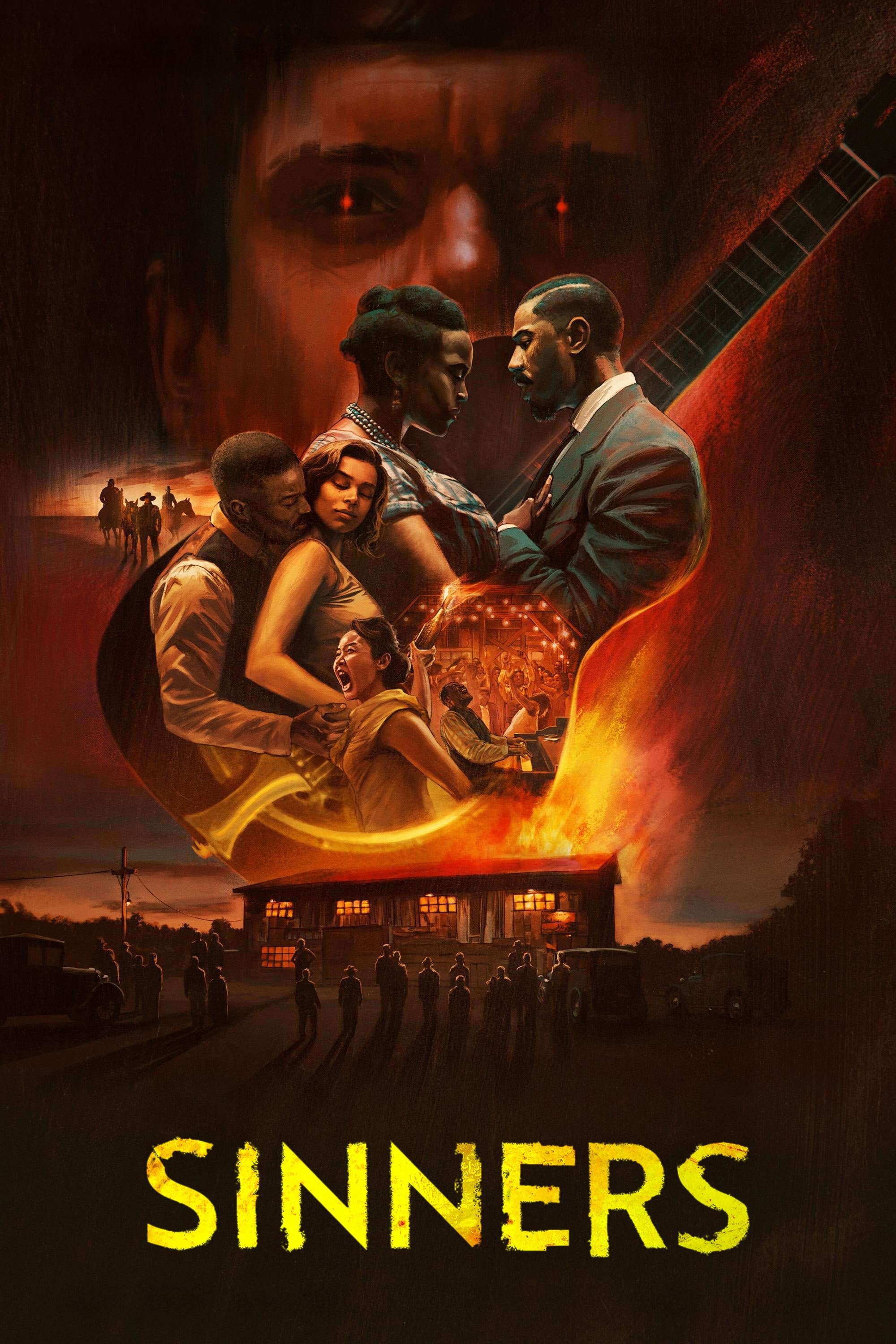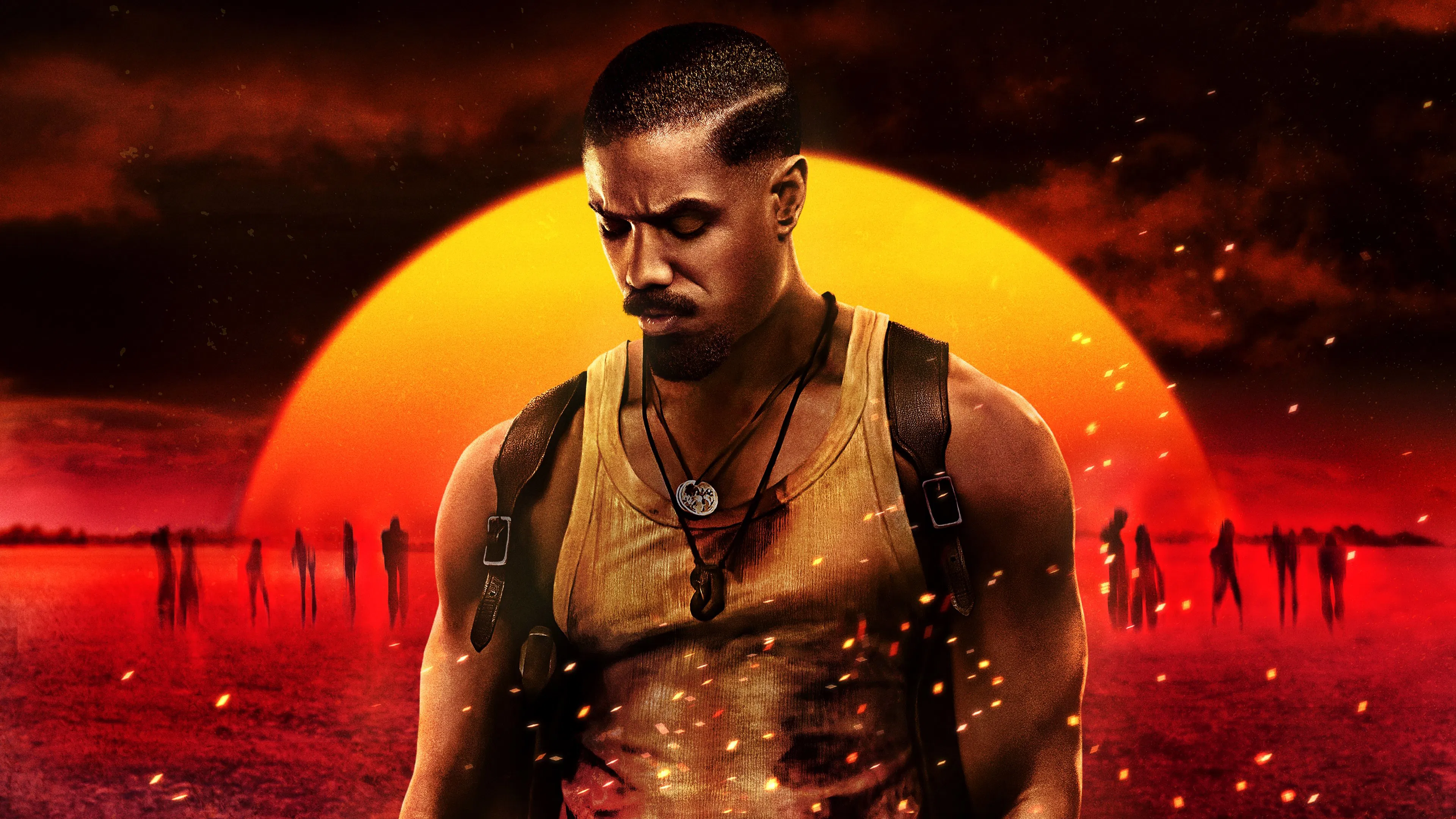What kind of mad, magnificent nerve does it take to thread blues, Jim Crow, juke joints, and bloody fanged vampires into a single, haunted hymn, then have the whole thing vibrate with a weary, unvarnished soul? In “Sinners,” Ryan Coogler’s blood-spattered Delta opera, the answer is: more nerve than most directors have in their little fingers. For a movie that starts off with the horror bag’s oldest two-bit trick, jump cuts and sulfurous flashbacks, as if auditioning to be the next entry in The Conjuring Industrial Complex, this one slinks out of its corner, trades its fangs for a microphone, and spins its story so slow and deep you could fall into it and drown in its music. Ten minutes in, I nearly scoffed. Ninety minutes later, I was reeling, what fuckery is this?
It’s not every day you see a vampire tale not only remember the old rules (the invitation, the threshold, the beady eyes rendered with pride, for once, and not ironic sheepishness) but play those rules for poetry. That moment when Grace, trembling, invites the horde into her haven, the joint’s smoky sanctuary, isn’t just a plot device, it’s the frission of every act of desperation ever committed by the unseen and unprotected. Dread isn’t just a surprise stabbing out of the shadows, it’s a rising pulse in the backroom blues.
Coogler, clearly, has fallen in love with his own slow-burn: he lets the Mississippi mud ooze, lets the music seep into the boards, lets the sweat and heat blur one night into another until you could swear you’re stuck between dreams and waking, horror and hope. Ludwig Göransson’s score, slithering between gospel and juke joint, doesn’t just wallpaper the movie, it occupies it, seduces it, drags you down to where the roots twist. And then, with that music video scene, fucking hell, it’s not just a sly anachronism, but a moment where you feel the ground drop from under you. I could feel the music gnawing on my bones, reverberating with Sammie’s impossible optimism as the dead and the damned dance around the living.
And oh, the dialogue! Too many horror directors treat black speech as another form of camp, another color, thrown up on the walls for seasoning, or else shrink from it entirely, as if afraid to let their actors sound like anyone outside Brooklyn. Here, every line is torn from life, those rolling, riverine cadences, sharp and bruised and funny. Delroy Lindo, who by now should be inducted into the National Registry of Instruments, doesn’t so much act as sermonize and howl; Wunmi Mosaku is a wounded goddess, and Michael B. Jordan, playing both halves of the broken twin coin, draws out the story’s secret ache, human even at his bloodiest.
Not everything lands, of course. The much-whispered Smokestack Twins, supposedly legends, the kind of men whose arrival in town sends a ripple of fear clear across three counties remain maddeningly underexplored. We’re told these brothers are infamous, feared, mythic even, but the film treats that reputation as a summary rather than an experience. What deeds trail behind them? What makes their legend more than a bit of outlaw hearsay? The characters around them evoke awe and anxiety, but the twins themselves are shaded in, not dyed to the bone. The movie keeps the juicy stories, the whispered threats and remembered glories just out of reach, as if Coogler were keeping their real exploits on ice for another picture. As it stands, the legends arrive with all their teeth bared but precious little bite.
But let’s not mistake the minor cracks for the rot. “Sinners” is less interested in gore than in hunger, hunger as hunger oppressed, as hunger exploited, as hunger that sings. And in Sammie, the film finds its pulsing heart, a limping boy with guitar and ghosts for company. Miles Caton, whose performance makes your hair stand on end (a star is born and doesn’t overreach), sings as if he’s riffing with every dead cousin and lost song from the Delta’s haunted history. Sammie and Pearline’s duet is the kind of moment you don’t expect in a vampire flick, trembling with the desire to be something eternal, immortal not because fangs erupt but because the music never ends.
The picture’s one real miracle is its refusal of comfort. Here is horror as Jim Crow fable, where the only freedom is in cunning or annihilation; where vampires and Klansmen are never sure which is worse, or more American. There’s a meanness under the magic, a reminder that even bloody transcendence is a luxury. Smoke dies, the legacy is scattered, and the real monster is still at the door. The film’s willingness to let the violence build, to let the light burn the monsters and then burn away the comfort, is a kind of boldness, yes, horror can be fresh, original, and still unafraid to feel.
As for the ending, “Sinners” refuses to shuffle off with the usual horror-movie curtain drop. There’s a sly, post-credits flourish, delicate as a ghost note, that lingers long after the lights come up. Instead of one last jolt for jolting’s sake, it leaves you with a bittersweet ache for all that’s been lost and hungered for. In that final, quiet shimmer, the movie manages what so many can’t: it sneaks past fear and lands somewhere stranger, where blues and horror, longing and survival, all twine together and keep humming in your bones.
If “Sinners” stumbles, it stumbles drunk on its own promise. But when it dances, when it really howls, it makes most horror movies look like cheap knock-offs, their teeth filed down for safety. Ryan Coogler and his cast let the old stories in, let them rage and weep and wail beneath the moon’s bruised light. If you want a movie that could only be described as a midnight sermon, blood, blues, and all, with every taboo invited through the door, this is the one.






